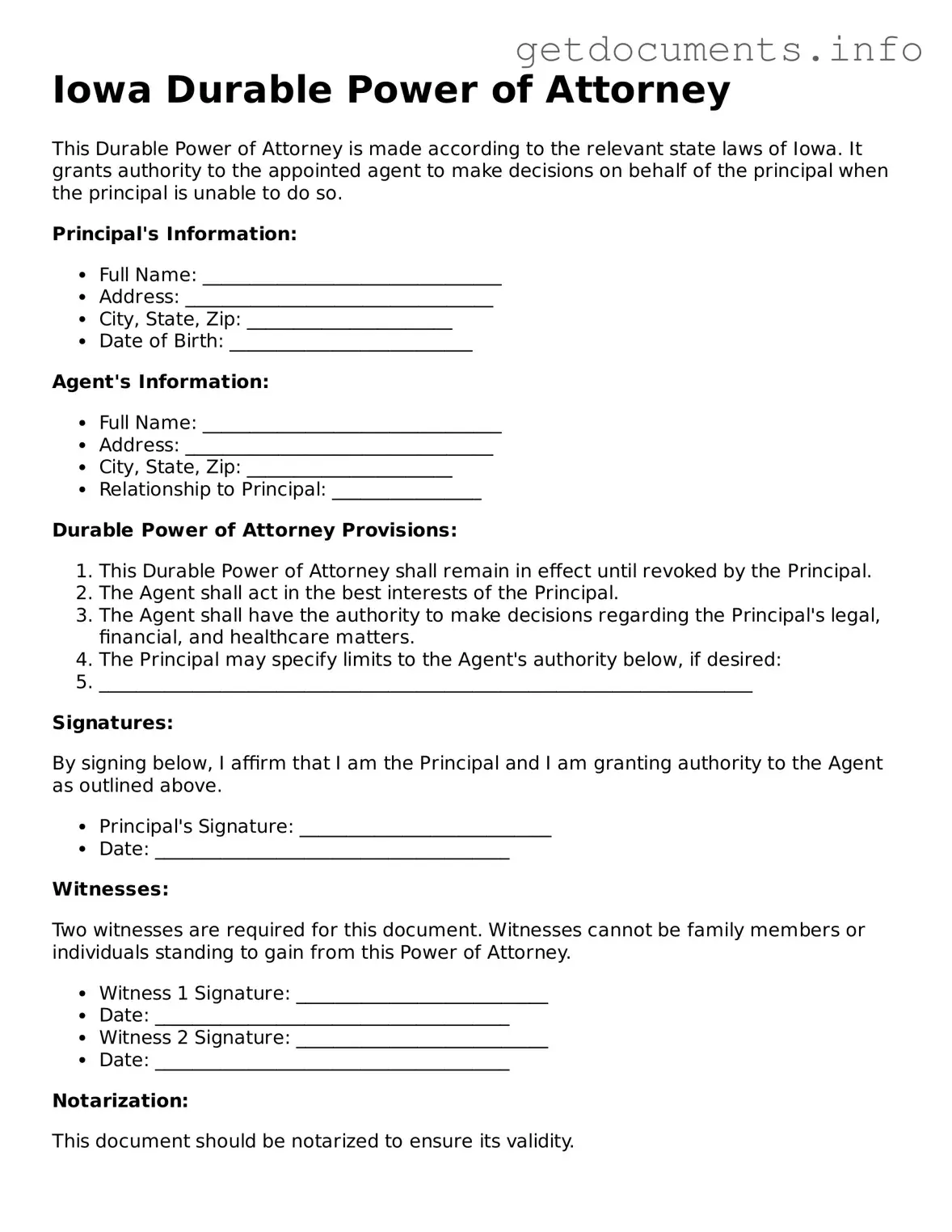Free Durable Power of Attorney Template for Iowa
The Iowa Durable Power of Attorney form is a legal document that allows an individual to appoint someone else to make decisions on their behalf, especially in financial or medical matters, should they become unable to do so themselves. This form is essential for ensuring that your wishes are respected and that someone you trust can act in your best interest. To get started on filling out the form, click the button below.
Access Durable Power of Attorney Editor

Free Durable Power of Attorney Template for Iowa
Access Durable Power of Attorney Editor
Got places to be? Complete the form fast
Fill out Durable Power of Attorney online and avoid printing or scanning.
Access Durable Power of Attorney Editor
or
⇩ PDF File
